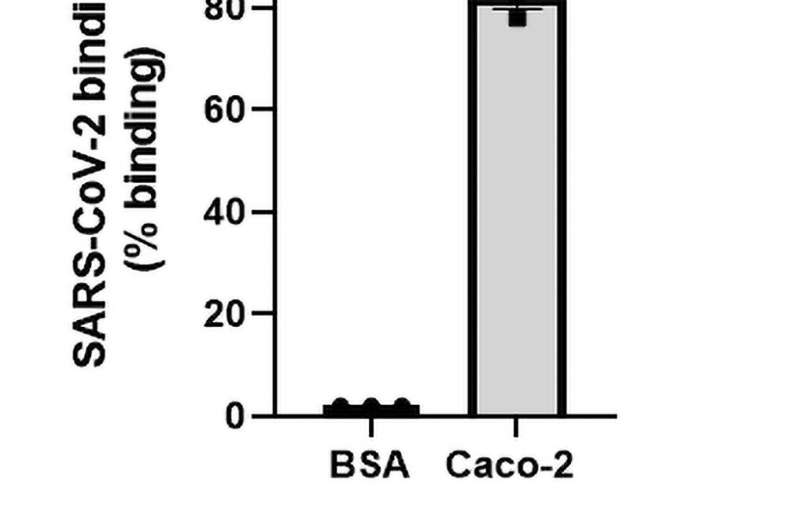Drug could potentially prevent respiratory and cardiovascular damage in COVID-19 patients

Scientists have identified a drug that can prevent the virus that causes COVID-19 from binding to human cells, potentially preventing damage to the lung, clot formation and the development of sepsis.
The study, led by researchers from RCSI University of Medicine and Health Sciences, is published in PLOS ONE.
The researchers identified that a mutation, present in all the variants of the virus to date, creates an additional binding site in the virus’ spike protein. This additional binding site increases viral impact in the body, including damage to the lung tissue that causes breathing problems in COVID-19 patients.
The significant damage to the lung tissue allows the virus to spread from the lungs to the bloodstream, where it can cause clots and vascular damage.
In pre-clinical testing, a drug called cilengitide successfully prevented the virus from causing the tissue damage associated with COVID-19 by stopping the virus from sticking to the cell types that line the lungs and blood vessels.
“More pre-clinical and clinical testing is needed before this treatment can be used on patients, but the results are very promising,” said Professor Steve Kerrigan, the study’s senior author and Deputy Head of the RCSI School of Pharmacy and Biomolecular Sciences.
Source: Read Full Article
